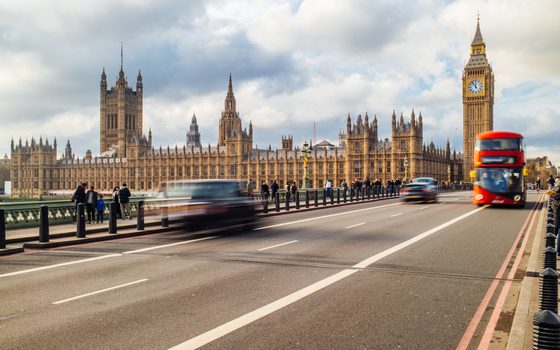Not the right time to get pumped up about inflation
Panicking about inflation right now could keep wages low and jeopardise our economic recovery
18 June 2021
Inflation is Rishi Sunak’s worst nightmare. Economists are typically scared of inflation — where prices rise, making the purchasing power of our money fall. Quickly rising prices can reduce consumption and undermine economic stability. With May’s inflation rate rising just above the Bank of England’s 2% target to 2.1%, is this nightmare becoming a reality?
In America, Joe Biden’s massive stimulus to boost the US economy is under scrutiny due to alarm about the potential for inflation. In the UK, this alarm is being used to justify the government’s reluctance to provide its own big economic stimulus. Both the ex-Governor of the Bank of England Mervyn King and chief economist of the Bank of England Andy Haldane are warning us of the dangers of inflation.
Damaging levels of inflation are actually quite unlikely at the moment. If we respond too vigorously to inflationary pressures with the standard inflation-busting policies we could suppress the recovery. Our fear of inflation is holding us back from tackling far more important issues, like low wages and the climate crisis.
As shown in the graph below, the Bank of England’s own projections imply that by 2024 the UK will have been under target inflation, on average, since the pandemic started — even if interest rates stay fixed. Even without any tightening of monetary policy — like increasing interest rates — we don’t seem to be on course for spiralling inflation.
In fact, it’s not a given that being under target inflation, on average, is advisable. Many economists argue that mild inflation above target is a healthy and desirable sign of recovery, as it shows demand is growing. Allowing inflation to balance out on average or overshoot helps to make sure demand and the economy can grow without immediately being repressed.
These ideas aren’t that controversial in the monetary policy realm, with the US Federal Reserve targeting average inflation and the Bank of Japan aiming to overshoot. If we took the same approach and targeted average inflation, this would mean aiming to overshoot inflation by more than we currently are doing, so that the long-term average gets back on target. A bigger economic stimulus could help achieve this.
A lot of the conditions currently driving inflation seem to be temporary. Prices are increasing because of rebounding consumer demand after a period of lockdown and pandemic-related global supply shortages. As demand settles and supply issues stabilise or resolve, these inflationary pressures will likely fade. In addition, many of these supply issues are caused by a lack of investment in businesses. Underinvestment often happens when investors aren’t confident in high levels of demand. So when we try to tackle inflation caused by these issues with policies that soften demand and increase the cost of investment, we’re shooting ourselves in the foot.
Beyond the short-term issues of consumer demand and supply chains, longer-term conditions also mean that we’re unlikely to see consistently higher inflation over a prolonged period of time. Andy Haldane is worried about inflation because he fears it will create something called a “wage-price spiral”.This is when high prices lead to workers bargaining for higher wages. These higher wages then lead to increased demand, which causes prices to rise again, continuing the cycle.
But this phenomenon is unlikely: falls in union density over the last few decades and our economy’s increasing reliance on precarious labour have reduced the power of workers and therefore made it more difficult for wages to respond to prices. This demonstrates how not all causes of low inflation are necessarily good. As the graph below shows, since 2008 rising wages have failed to keep up with rising prices.
We shouldn’t let our fears of inflation deter us from working towards higher wages. While a wage-price spiral is unlikely, mild inflation above target driven by higher wages wouldn’t necessarily be bad, provided wage rises outstrip inflation. Given higher real wages are likely to stimulate productivity, wage increases don’t automatically translate into price increases. By next year 32% of people in the UK will be living below a socially acceptable standard of living. If we want to increase living standards, we need wages to increase more than prices.
More secure work and higher wages are both good things, even if the cost is slightly higher inflation. While current labour shortages and recent increases in union membership help tip things in favour of workers, we need more ambitious policy that provides people with a living income and gives workers more power in the jobsmarket. Yes, this could bring about an actual wage-price spiral and higher persistent inflation — but it also shows how causes of higher inflation don’t necessarily have to be bad. Once this has happened, it may make sense to respond with anti-inflationary pressures that reduce demand — but as the graph above shows, there’s no indication this is happening any time soon.
Joe Biden recognised this recently, saying that “rising wages aren’t a bug; they’re a feature” of America’s large economic stimulus. The UK’s stimulus currently pales in comparison, which makes it harder for us to tackle problems like poverty, inequality, the climate crisis and economic scarring from the pandemic — all far bigger issues than inflation right now.
Inflation shouldn’t be the chancellor’s nightmare. And it certainly shouldn’t be a bogeyman used to argue against a larger government stimulus or for increasing interest rates right now. The loss of income many people have experienced during the pandemic have already been a nightmare for many. So long as we aim for wages to overtake rising prices, inflation would be a lot less scary.
Image: Pexels
Topics Macroeconomics






